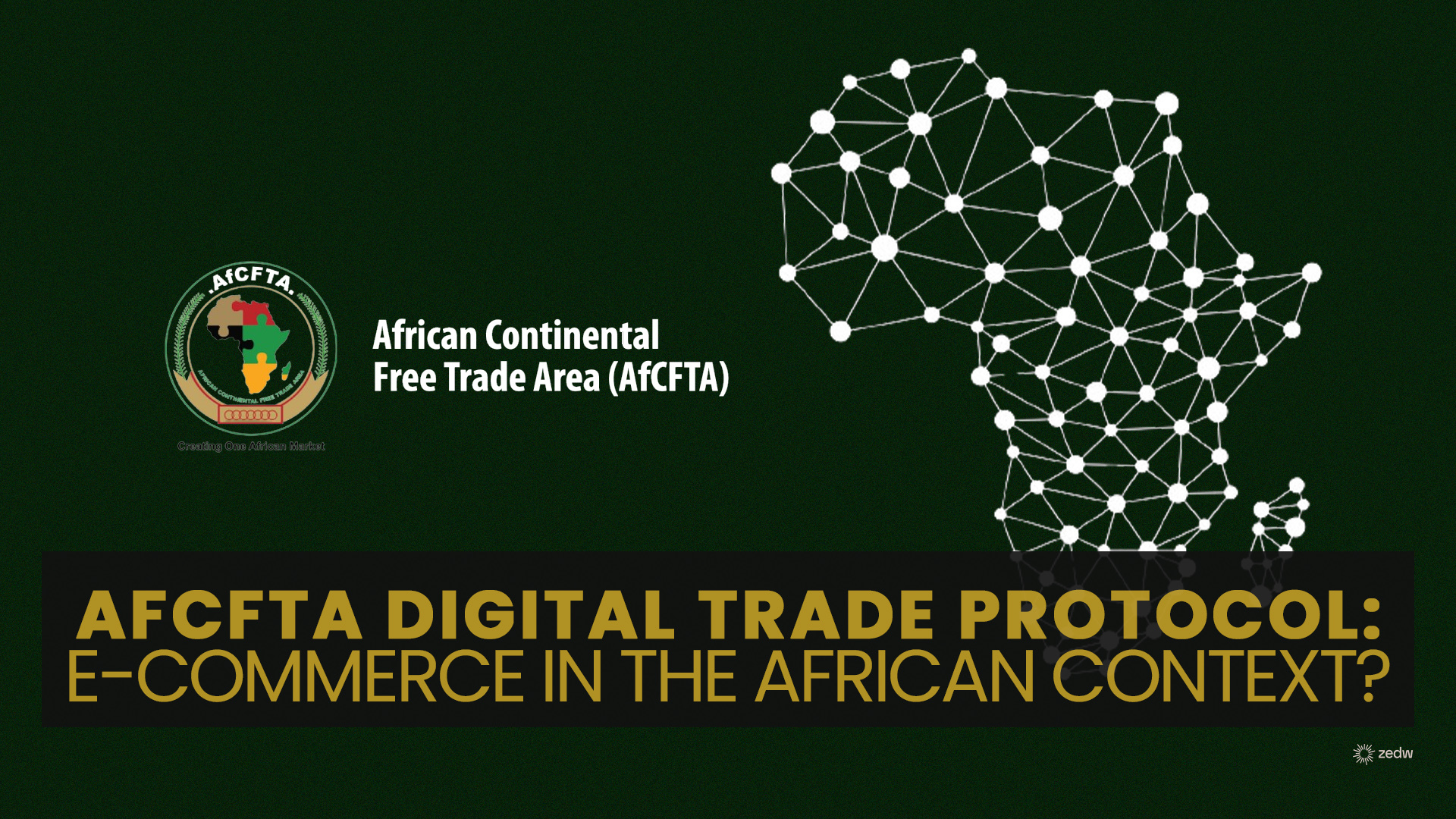
Our Projects are
Transforming African Trade
Quick Contacts
2nd Floor, Fidelity Insurance Centre Waiyaki Way, Westlands

Earlier this year African heads of state, gathered for the annual African Union summit and approved the new Protocol on Digital Trade (the “Digital Protocol”) under the auspices of the African Continental Free Trade Area (AfCFTA). Approval of the AfCFTA’s Digital Protocol is a pivotal step for African nations, their citizens, private sector, and other stakeholders in Africa’s ongoing development as a player the global economy.
The Protocol is intended to support continent-wide digital trade and help both individual African countries, and the continent as a whole, participate fully in the digital economy of the future by harmonizing rules, standards, and practices. The urgency and speed with which the Digital Protocol was developed, negotiated, and approved is a model for continental diplomacy.
Summary of the Digital Protocol
The Protocol is comprehensive and has far-reaching implications. The Digital Protocol applies to all African states who have signed on (expected to be most or all member states eventually) and covers all market sectors. All parties to the agreement must comply with the Digital Protocol within five years.
Key areas addressed include improving market access, facilitating digital trade, enhancing data governance, fostering business and consumer trust and transparency, improving digital inclusion and literacy, tackling emerging technologies such as AI, and building continent wide capacity to participate fully in the global digital economy.
The Digital Protocol has the potential to transform Africa into a major global hub for digital products and services
In focusing on improving trade across African countries with each other and, as a combined Africa global market, the Protocol specifically attempts to address some known impediments today, such as the ability to move data, digital products and services, and digital payments across nation borders within Africa. The Protocol pays particular attention to ensuring modernized and harmonized digital payment infrastructure and regulations that make it easier for Africans to do business with other Africans.
Of particular interest to tech companies, both global and African-based, the Protocol paves the way for more African data centers and increased cloud computing, promotes digital literacy and capacity development, eliminates data residency claims except in special circumstances, and provides protections around source code.
What it means for Africa and the World
The Digital Protocol has the potential to transform Africa into a major global hub for digital products and services.
First, though, Africa must leverage its combined digital-enabled market power to the world. With 54 countries, all with different digital requirements, patchwork legal frameworks, ranging market maturity, and varying impediments, many individual countries are being left behind in the digital age.
The Digital Protocol paves the way for a range of data and digital intensive industries. For example, the global life sciences market needs African nations and their markets to improve flow of data regionally and continent wide. Also, nascent African manufacturing of pharmaceuticals and medical devices needs data-driven efficient supply chains, optimized management of inventory, product flow, and chain of custody. With more integrated regional and continental supply chains enabled by digitization, African pharmaceutical manufacturers should be able compete more effectively on the global stage.
The Protocol, combined with improved infrastructure and human capacity development, will make African nations much more attractive for private capital. This, in turn, should accelerate early efforts to foster African regional data center hubs, entrepreneurial accelerators, and tech outsourcing.
Read original article
Disclaimer: The views and opinions expressed in this article are those of the authors and do not necessarily reflect the official policy or position of TradeMark Africa.